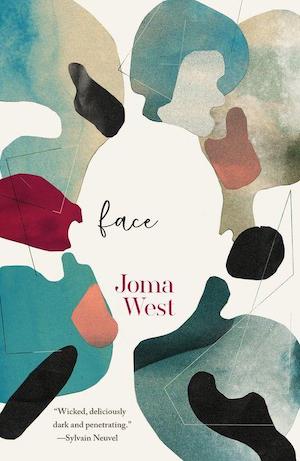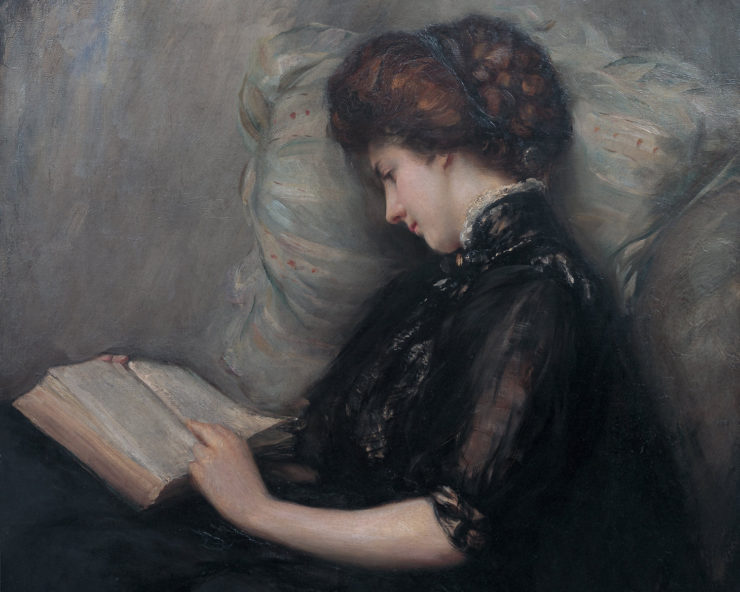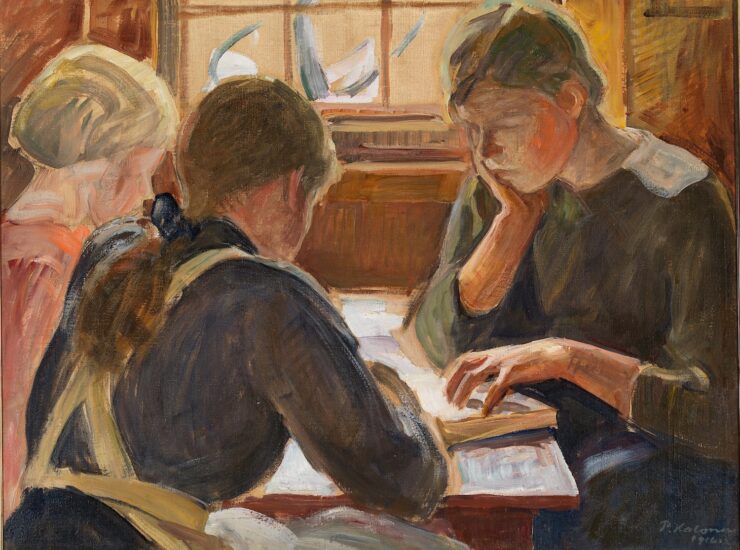What’s your favorite sad banger? In The New York Times last weekend, Hanif Abdurraqib wrote an ode to this particular kind of song, the kind “whose lyrics of grief, anxiety, yearning or some other mild or great darkness are washed over with an upbeat tune, or a chorus so infectious that it can weave its way into your brain without your brain taking stock of whatever emotional damage it carries with it.”
People have used the term sad banger before, but no one has put it better. It’s the contradiction, the nuance, the two-to-five minutes of holding grief and fury, sadness and delight, loss and hope together in your head, the feelings stitched together with song lyrics that, more often than not, beg to be sung. It is, as Abdurraqib notes, Robyn’s “Dancing on My Own.” For me, it’s an obscure B-side by a Scottish band that I put on when I just need a straight shot of feelings: an anthem that feels like a ballad, a song that’s somehow a door opening and closing at once. And thanks to Abdurraqib’s piece, it’s also now Pronoun’s perfect five-track shot of pandemic anxiety, OMG I MADE IT.
But: Can you sustain a sad banger? Can a whole album be a sad banger? And—you knew this was coming—can a book?
It is a truth of sad bangers that I can’t write while listening to them. I tried to start this column listening to my own personal favorite sad banger subgenre of anthemic songs with heartbreaking lyrics: to that Idlewild B-side, to the Mountain Goats’ “This Year” or Sleater-Kinney’s “Get Up” or the entirety of Frightened Rabbit’s The Midnight Organ Fight and Worriers’ Survival Pop. To Metric’s perfectly bittersweet “The Shade” and Bloc Party’s “Hunting for Witches.” (Whether you think these are sad bangers or not is beside the point. Sad bangers are the ultimate “your mileage may vary.”)
But what makes a sad banger a sad banger is, maybe, that you have to give yourself up to it. You can’t do something else while a sad banger is on. You have to let its feelings become your own.
Or, as Abdurraqib put it:
…it gets beyond binary emotions and unlocks a multilayered fullness that might, depending on the song, involve dancing, and crying, and longing, and stumbling out of some dive bar midtune to text or call the person you probably shouldn’t.
Unless you are reading in bars while drinking so much that reading gets challenging, you’re probably not doing that last one mid-book. You might be, though. I have more than once found a moment in a book that so echoed across time that I wanted to text people I hadn’t spoken to in years. But trying to explain it would be too much work, especially in a text. Turning the page is much easier.
It doesn’t often work to use the language of music for books, or vice versa. A few things cross the road from one to another, some phrases about language and rhythm and shape. A sad banger of a book does something different than a sad banger of a song. The nuance, the complication, the sense of heartbreak and joy, the coexisting emotions: those are all there. But how to translate the way that lyrics and music work together into a world that’s just prose?
Plot and character arc, maybe. Story and feelings. Prose and emotion. Somewhere, somehow, there has to be a contrast (not necessarily a conflict) between what happens—in the story or on the page—and the way it feels. An epic fantasy where you’re crying at the end and you can’t put your finger on why. A blistering revenge story where the protagonist has to face the fact that everything she’s done has failed to make her feel any better. A devastating story written with uncommon grace.
(You can definitely find sad bangers in movies. The Empire Strikes Back is a classic sad banger. Rogue One wanted to be a sad banger but it didn’t quite get it right, and the close-but-yet-so-farness of it all was more frustrating than plain failure might have been. The Fall remains my favorite movie, and it is absolutely a sad banger. Everything Bryan Fuller makes has sad banger moments. Battlestar Galactica? Sad banger. The Magicians adaptation? Nothing but.)
I’ve been reading other people’s thoughts on sad bangers, and they are as varied as the songs we’d each list within the category. Some people think they have to be well-known, but to me that contradicts another key point of sad bangers: Only the rarest among them are universal. (See again: Robyn.) I like to think that we can all agree that The Stone Sky is royalty among sad banger books. Code Name Verity, which destroys readers with just six words. The Last Unicorn. The fact that the elves, in The Lord of the Rings, are going to diminish and go into the West. As a kid I was outraged: Let the elves stay! Elves are cool as shit and I want them around! As an adult, the fading says something different, something more complicated and difficult.
Buy the Book


Face
But most sad book bangers are sad, and bang, for you alone in some way that no other reader will ever feel. They’ll come close; another reader’s sad banger path will intersect yours sometimes, but not at every point. I’ve tried to explain why Catherynne Valente’s The Girl Who Soared Over Fairyland and Cut the Moon in Two is high on my list of personal sad banger stories. It’s a book for kids, and yet its lesson (It’s a terrible magic that everyone can do—so do it. Call yourself what you wish to become) is one I have to keep trying and failing and trying to learn. And it’s a book that says you don’t have to go “home” to some mundane adulthood. You can, as September does, cry and blush and change. But not everyone will get that from Valente’s story about a girl and a pregnant moon. (I would like for them to! But who can say what else people bring to that book when they sit down to read it?)
And sometimes, a sad banger is undefinable, unexplainable: you know it when you read it. When I finished Jordy Rosenberg’s Confessions of the Fox, I was sobbing. I didn’t really understand why. The end wasn’t sad. It was exultant and glorious and free, and I wanted that story for everyone, wanted everyone to see all of the things Rosenberg had done with characters and ideas and footnotes! beautiful, plentiful footnotes! and storytelling and reclaiming and sex and joy. But there are layers and depths and darknesses and rich contrasts in story and telling, and a framing story with a sense of threat and control that feels familiar and close. Confessions is an escape, and when it was over I wanted to go back in. Maybe I was simply crushed because it was over and I didn’t know what to do with myself. It’s a banger. I was sad.
Sad bangers are a color and a shape and a feeling and an itch, all those things that aren’t songs or stories or books, but that we nevertheless wind up associating with them. They’re that feeling like you can’t possibly contain what you’re reading, like it’s going to burst out of you in some kind of opposite-chestbuster situation, rainbows and sparklers and perfectly shaped teardrops instead of murdery little aliens. A feeling like you need to dance, in your chair or out of it. It’s so hard to put that into words. But I bet you know a song or a story that feels like it.
Molly Templeton lives and writes in Oregon, and spends as much time as possible in the woods. Sometimes she talks about books on Twitter.














